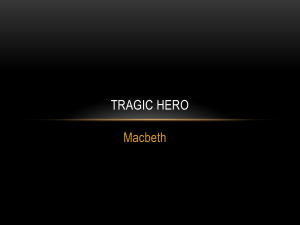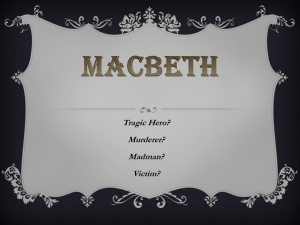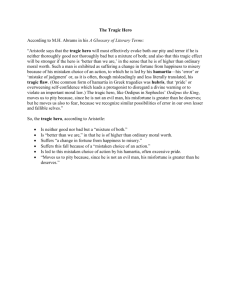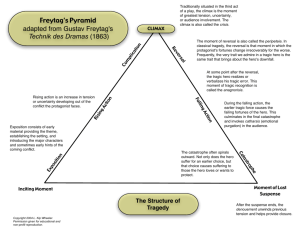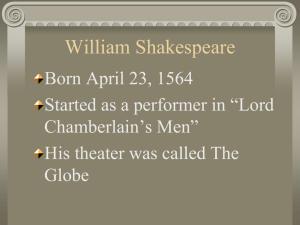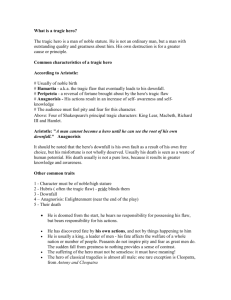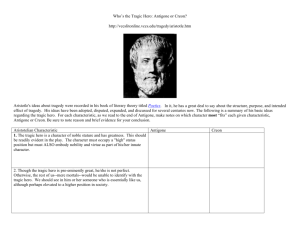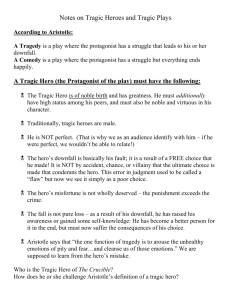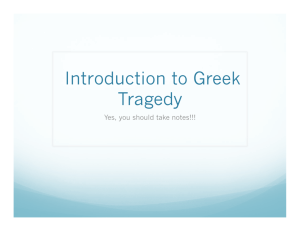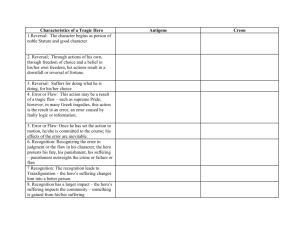Greek Tragic Hero: 6 Key Characteristics Explained
advertisement
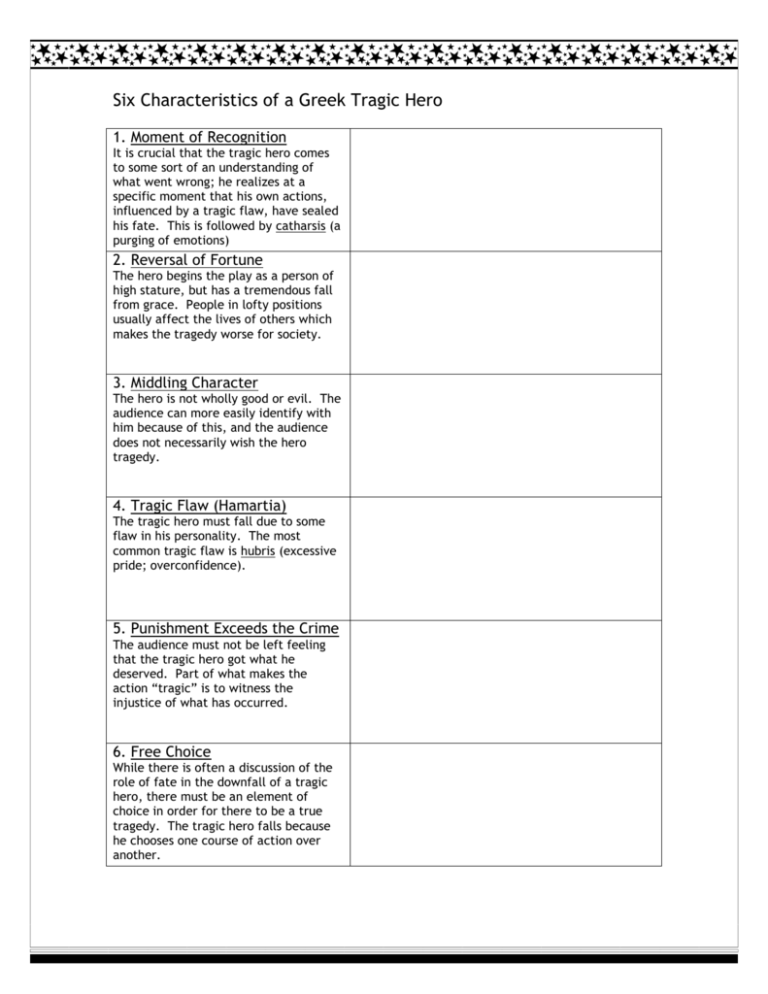
Six Characteristics of a Greek Tragic Hero 1. Moment of Recognition It is crucial that the tragic hero comes to some sort of an understanding of what went wrong; he realizes at a specific moment that his own actions, influenced by a tragic flaw, have sealed his fate. This is followed by catharsis (a purging of emotions) 2. Reversal of Fortune The hero begins the play as a person of high stature, but has a tremendous fall from grace. People in lofty positions usually affect the lives of others which makes the tragedy worse for society. 3. Middling Character The hero is not wholly good or evil. The audience can more easily identify with him because of this, and the audience does not necessarily wish the hero tragedy. 4. Tragic Flaw (Hamartia) The tragic hero must fall due to some flaw in his personality. The most common tragic flaw is hubris (excessive pride; overconfidence). 5. Punishment Exceeds the Crime The audience must not be left feeling that the tragic hero got what he deserved. Part of what makes the action “tragic” is to witness the injustice of what has occurred. 6. Free Choice While there is often a discussion of the role of fate in the downfall of a tragic hero, there must be an element of choice in order for there to be a true tragedy. The tragic hero falls because he chooses one course of action over another.

